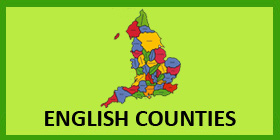




Back to the End Of The Georgians calendar



 On Saturday June 18, 1815, there took place one of the two most famous battles in English History. The first, the Battle of Hastings, took place on English soil in 1066. This one, the Battle of Waterloo, didn't take place near a London railway station, trains hadn't started running yet, but at a small village in Belgium. It was fought between the French, under Napoleon, and the British and the Prussian army with the British led by a man who was as famous as our earlier hero Horatio Nelson. He was the Duke of Wellington and is the reason why we are talking about this particular battle, although it happened in Belgium.
On Saturday June 18, 1815, there took place one of the two most famous battles in English History. The first, the Battle of Hastings, took place on English soil in 1066. This one, the Battle of Waterloo, didn't take place near a London railway station, trains hadn't started running yet, but at a small village in Belgium. It was fought between the French, under Napoleon, and the British and the Prussian army with the British led by a man who was as famous as our earlier hero Horatio Nelson. He was the Duke of Wellington and is the reason why we are talking about this particular battle, although it happened in Belgium.
Napoleon had finally been defeated in April 1814 and sent away to the Italian island of Elba. That wasn't far enough. He escaped in February 1815 and returned to France on March 1, 1815, landing near Cannes with 1,000 men. He won support from the rural peasantry as he marched toward Paris, and Louis XVIII, who the allies had restored to the French throne, ran away. After a delay while all armies gathered together, they met on June 18 and Napoleon was once and for all, defeated. The British then sent him away to a remote island in the middle of the Atlantic Ocean called St Helena (atlas and magnifying glass), where he died six years later aged 51.
 The Duke of Wellington who led the British had a very varied career. He was actually born in Dublin in Ireland as Arthur Wellesley. He didn't really want to be a soldier, he loved music, but his mother did want him to be so he joined a highland regiment and fought in Europe in 1794 and India in 1796.
The Duke of Wellington who led the British had a very varied career. He was actually born in Dublin in Ireland as Arthur Wellesley. He didn't really want to be a soldier, he loved music, but his mother did want him to be so he joined a highland regiment and fought in Europe in 1794 and India in 1796.
 In 1806 he became an MP. His constituency was Rye in Sussex. He continued his military career and was commander of the British Army in the Peninsula War, which was fought between 1807 and 1814 in Spain and Portugal.
In 1806 he became an MP. His constituency was Rye in Sussex. He continued his military career and was commander of the British Army in the Peninsula War, which was fought between 1807 and 1814 in Spain and Portugal.
In 1814 he was given the tittle Duke of Wellington and, after his win at Waterloo, he came home, luckily not like Nelson in a barrel of brandy, and was treated as a hero. He was given £400,000 and a large estate in Hampshire.
After serving in various posts in government he became Prime Minister in 1828. He was far less successful and indeed was rather unpopular as PM. He did not like change and tried to stop any reform. He believed in the rule of the elite class and refused to expand on the classes of people who could vote. His military training didn't work in government and this seemed to surprise him. After his first Cabinet meeting as PM he is reported to have said that it was “an extraordinary affair. I gave them their orders and they wanted to stay and discuss them.”
He resigned in 1830 having become so unpopular that crowds threw things at his London home. He died in 1852. The Wellington Arch still stands in London’s Hyde Park. He also gave his name to the humble Wellington boot.
Forward to 1819AD

